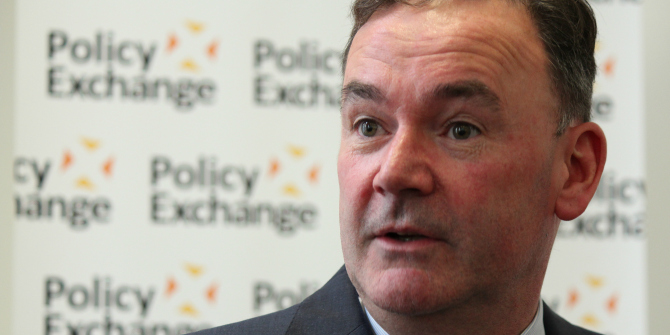 Negotiations and more negotiations, year after year. That will be the main business of Theresa May’s government for the foreseeable future, argues Charles Grant. Britain’s exit from the EU will require at least six interlocking sets of negotiations, and they will take much longer and be far more complicated than most British politicians realise.
Negotiations and more negotiations, year after year. That will be the main business of Theresa May’s government for the foreseeable future, argues Charles Grant. Britain’s exit from the EU will require at least six interlocking sets of negotiations, and they will take much longer and be far more complicated than most British politicians realise.
One negotiation will cover Britain’s exit from the EU, the second a free trade agreement (FTA) on future economic ties, the third interim cover for the British economy before the FTA enters into force, the fourth accession to the World Trade Organisation (WTO), the fifth a set of deals to replace the 53 FTAs that bind the EU and other countries, and the sixth an agreement on co-operation in foreign, defence and security policies.
The first deal will tackle the UK’s separation from the EU, as prescribed by Article 50. This “divorce settlement” will divide up the properties, institutions and pension rights, deal with budget payments, and decide on the rights of UK citizens in the EU and vice versa. Article 50 sets out a two year period for this negotiation, extendable by unanimity. However, the other 27 want Britain out before the June 2019 European elections and the imminent cycle of EU budget talks so will not extend the deadline.
The second deal will cover future economic ties with the EU. Theresa May will reject the “Norwegian model,” although it would offer access to the single market, since the price—payments into the EU budget and free movement of labour—would be unacceptable. She will go for a free trade agreement, along the lines of the recent EU-Canada deal. The FTA may eliminate tariffs on manufactured goods but is unlikely to scrap many non-tariff barriers. Britain would gain only limited access to the single market for services. UK-based financial firms would lose the “passporting” that enables them to do business across the EU, while other service industries—such as shipping, airlines and the law— would also suffer.
The European Commission has taken a hard line by saying that work on the FTA should not start until the UK has left the EU. This would extend the period of uncertainty afflicting the UK economy. But Germany and several member-states suggest that the UK be allowed to work on the FTA concurrently with the divorce settlement. This softer line will probably prevail, but the FTA would still take many more years to negotiate and ratify than the Article 50 deal.
That gap requires a third negotiation for an interim deal to provide temporary cover to the British economy. Anand Menon and Damian Chalmers suggest that Britain should be able to repeal EU laws and shun European Court of Justice rulings, but face the prospect of countermeasures from the EU. They want to limit free movement only to those with job offers, excluding families of EU migrants unless the wage-earner’s income passes a certain level. Britain would stop paying into the EU budget but make direct payments to poorer member-states. However some of the 27 would find such an interim deal too soft—they don’t want the exit process to be seen as painless—and there will be much haggling over the details.
The fourth deal would be to attain full WTO membership, since Britain is currently only a member via the EU. The UK would have to deposit its own schedules of tariffs, quotas and subsidies with the WTO. First it must reach agreement with the other EU countries on the schedules, and then all 162 WTO members must agree. One country—say Russia or Argentina—could, if it wished, block the UK becoming a full member.
The fifth set of negotiations that Britain must undertake is with the 53 countries that have FTAs with the EU. On the day that Britain leaves the EU, it loses the benefits of these deals. The UK will need to hurry to cut its own bilateral trade agreements with these countries, before it exits the EU.
Conservative ministers talk of striking trade deals with dozens of states that don’t currently have them with the EU, such as the US, China, India and Australia. But while the UK is an EU member it cannot legally complete an FTA with another country. It can talk about talks. But there is also the practical problem that these countries will not want to negotiate an FTA with the UK until they know what the EU-UK relationship looks like. Nor will they want to enter into talks with Britain until it has sorted out its WTO membership.
The sixth deal will cover UK-EU ties in foreign and defence policy, police and judicial co-operation and counter-terrorism. The UK has more bargaining power in these areas than on trade, since its diplomatic, intelligence and military assets are useful to its partners. The UK may succeed in gaining mechanisms that allow it to feed its expertise into EU deliberations—though it will have less influence on EU policy-making than it has today.
In order to reach outcomes that suit British interests, Theresa May’s government needs to earn the goodwill of its 27 EU partners and the EU institutions—including the European Parliament, which will vote on both the Article 50 divorce settlement and the British FTA. But it also needs to charm other governments across the world, so that the WTO talks and the FTA negotiations with non-EU countries run smoothly. The longer British ministers take to complete these negotiations, the worse the uncertainty for the British economy. That reality will encourage them to seek compromises.
Please note: This post first appeared on the Centre for European Reform blog
 Charles Grant is director of the Centre for European Reform. He is the author of numerous CER publications, including Russia, China and global governance (2012) and How to build a modern European Union (2013). He works on, among other subjects, EU foreign and defence policy, Russia, China, the euro and global governance.
Charles Grant is director of the Centre for European Reform. He is the author of numerous CER publications, including Russia, China and global governance (2012) and How to build a modern European Union (2013). He works on, among other subjects, EU foreign and defence policy, Russia, China, the euro and global governance.








Sounds like a remoaner commenting on brexit, as a director for european reform he must be well aware that our best bet is to not bother to much with what the intransigent eu wants and more what the nations outside wanting FDA’s want.